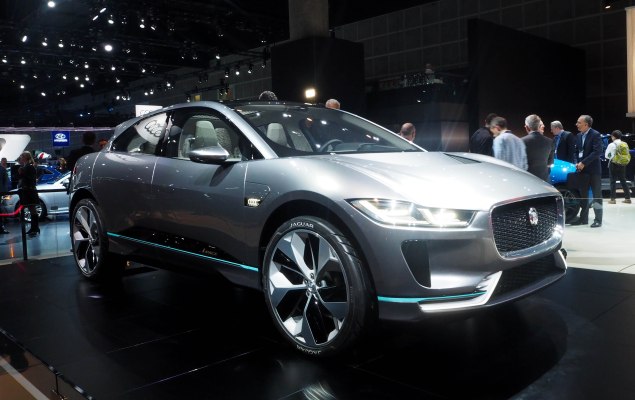EVgo announced this month that it has broken ground on what will be the first public DC fast charging station, capable of up to 350 kw, in California — more powerful even than current charging champs Tesla Superchargers. The EVgo station will be ready to charge up near the World’s Tallest Thermometer (yup) in Baker, California, this summer.
This begs the questions: How fast are other fast chargers? And how fast is fast charging?
The amount of time it takes to charge your EV depends on two things: how much power is being supplied by the charger, and how much power your car’s charging system can handle. An EV has to be compatible with the CHAdeMO standard, the SAE CCS standard or be a Tesla (which comes with plug adapters for the other standards) in order to use Level 3 stations.
At a Level 1 wall outlet, it generally takes overnight — or longer — to charge up a depleted EV battery. At a Level 2 charger, it takes overnight, more or less, to fully charge. At a Level 3 station, a battery can be recharged up to 80 percent usually in under an hour.
Those are the general rules; here are some specifics as reported by the manufacturers:
- Tesla Model S: 120 kw Supercharger station, to 80 percent charged in 40 minutes
- Jaguar I-PACE concept EV: 50 kw Level 3 station, to 80 percent in 90 minutes
- Chevy Bolt: 50 kw Level 3 station, 90 miles in 30 minutes
- Nissan Leaf: 50 kw Level 3 station, 80 percent in 30 minutes
EVgo has a network of more than 800 fast chargers in addition to the new high-power station, which will have four chargers at first with the capability to expand to eight. It will also have a solar-panel canopy to power the chargers and shade the people and cars using the stations, plus back-up batteries for the system in case you stop to charge at night. The station won’t have the Wi-Fi hotspot that you’ll find at a Tesla Supercharger, but don’t forget — it does have the World’s Tallest Thermometer.
